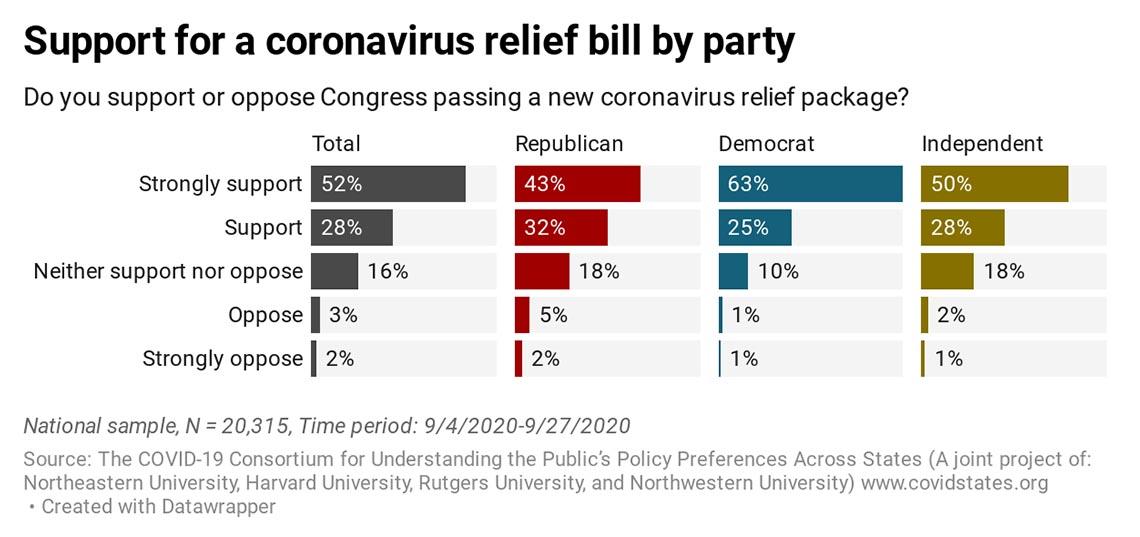
By Megan Schumann, Rutgers University-New Brunswick Communications
Rutgers scholar Katherine Ognyanova is available to comment on the latest Rutgers-Harvard-Northeastern-Northwestern survey data from The COVID-19 Consortium for Understanding the Public’s Policy Preferences Across States.
The researchers polled 20,315 people across all 50 states plus the District of Columbia from Sept. 4-27 about the next COVID-19 relief bill. Respondents were asked if they supported such a bill as well as the types of relief they believed it should include and whether they had received the $300 to $400 supplemental unemployment benefit authorized by President Trump’s executive order of Aug. 5.
To view the full report and findings, click here. Among the findings:
- The highest level of support is for direct cash payments (78%), followed by aid to hospitals (63%), aid to K-12 schools and small businesses loans (57% each), and extended unemployment insurance (53%)
- While Democrats, Republicans, and independents all rate cash payments as their most preferred type of aid (favored by 82%, 72%, and 78%, respectively), this is where consensus support ends.
- Among Republicans, the next-most-favored forms of aid are small business loans and aid to hospitals (55% each), while the least favored forms of aid are to essential industries (35%) and state and local governments (30%).
- Among Democrats, the most-highly-supported forms of aid beyond cash support include aid to hospitals (70%), unemployment insurance supplements (65%), aid to K-12 schools (64%), and aid to small businesses (60%), while the least favored type is aid to essential industries (41%).
- Beyond cash payments (76%), white Americans are most likely to support aid to hospitals (63%) and small business loans (59%), while their least-supported aid types are aid to essential industries (38%) and to state and local governments (39%).
- Beyond cash payments (84%), Black respondents are relatively likely to support unemployment insurance (68%), aid to hospitals (67%), and aid to K-12 schools (64%).
- Over 70% of respondents in every state and the District of Columbia support a new relief package.
- Aid to essential industries (such as airlines) is the least popular potential provision.
- Only 30% of respondents who said they are unemployed indicated that they received the $300 or $400 unemployment insurance supplements made available through President Trump’s August executive action. Of those, only 2% said that they received the full $400.
Ognyanova, an assistant professor at Rutgers’ School of Communication and Information, does research in network science, computational social science, social technology, media, civic and political communication.
Image: Courtesy of the Covid States Report and Katherine Ognyanova
